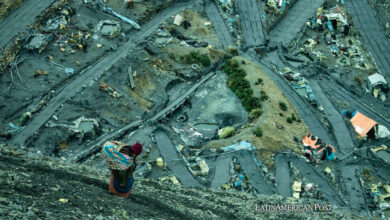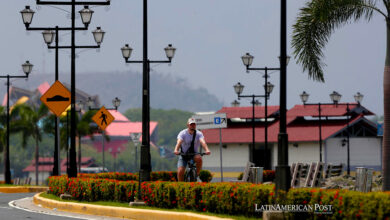Chronicle: This Is How The Climate Crisis Has Turned Canada’s Forests Into Hell
Never before has Canada experienced a wildfire season as destructive as this summer .

Photo: Pexels
Julio César Rivas | EFE
Listen to this article
Leer en español: Crónica: Así es como la crisis climática ha convertido los bosques de Canadá en un infierno
Nearly 6,000 fires, fueled by the climate crisis, have burned an area equivalent to the sum of Guatemala and Costa Rica. Experts say it's just the beginning. The images that have been repeated since May of the Canadian forests are apocalyptic.
Vehicles loaded with families, circulating on roads besieged by burning trees. Cities surrounded by fires. Tornadoes of flames generated by the intense temperatures. Skies orange from the fires and covered with thick layers of smoke. Houses and vehicles turned to ashes.
For weeks now, wildfires have broken records every day in Canada. Never before in all its history has the North American country had to face a similar situation.
"The situation is extraordinary," David Martell, professor emeritus in forest fire management systems at the John H. Daniels School of Architecture, Landscape and Design at the University of Toronto, told EFE. "It's the worst wildfire season ever recorded in the country. About 6% of Canada's boreal forest has burned. That's a pretty huge amount. Normally it would be 1% ," Martell added.
The area burned since the beginning of the year is already 150,000 square kilometers, 10 times more than the area consumed by the flames in all of last year, six times more than the annual average of the last decade, equivalent to the land mass of Bangladesh or the sum of Guatemala and Costa Rica.
Canada is the third country with the most forests in the world, about 3.5 million square kilometers, slightly less than the area of all the countries that make up the European Union (EU). And of this amount, some 2.7 million square kilometers is boreal forest. "Although Canada has a large forest area, 6% is a lot," explained Martell, noting that most of the fires this year have burned boreal forest.
Climate crisis
A study released a few days ago by an international team of scientists concluded that the climate crisis, with the increase in temperatures, has doubled the chances that Canada will suffer weather conditions that facilitate the appearance of extreme fires.
The scientists from Canada, the United Kingdom and the Netherlands noted that from May to July, the North American country experienced temperatures 0.8 degrees Celsius above the previous record set in 1998, an increase they described as "huge margin." And they warned of an increase in the probability and intensity of large fires, such as those experienced this year, in a world in which temperatures will rise by 2 degrees Celsius, as is expected to occur as a result of greenhouse gas emissions.
"Everyone knows that these types of summers have become more common and will be much more normal because of climate change," Martell said.
What's almost worse, the fires are creating a self-reinforcing cycle. According to the European Union's Copernicus Atmosphere Monitoring Service, from January 1 to July 31, Canadian wildfires emitted the equivalent of 1 billion tons of carbon dioxide , which will exacerbate the climate crisis.
Human impact
Although most of the almost 6,000 forest fires suffered this year in Canada have occurred in remote areas (Canada is the fourth country in the world with the most land mass), far from large urban areas, Martell lamented that the human and economic impact is being dramatic.
The 20,000 inhabitants of the city of Yellowknife, the capital of the Northwest Territories about 5,000 kilometers northwest of Toronto, have been evacuated due to the threat of the flames that are 15 kilometers from the urban center. In the western Canadian province of British Columbia, more than 35,000 people had to be evacuated from the towns of Kelowna West and Kelowna , which have a combined population of about 160,000 people. Also in Quebec, in the east of the country, tens of thousands of people fled the flames and left their homes in July and August. In total, it is estimated that a quarter of a million people have been evacuated this year in Canada as a result of forest fires.
The economic cost has yet to be measured, but it is feared that it will be by far the most expensive natural disaster in the country's history. And the impact of the wildfires has not been limited to the country's borders. The dangerous smoke from the fires, loaded with particles that are harmful to health, has caused serious problems in American cities such as New York or Washington and has even reached Europe.




